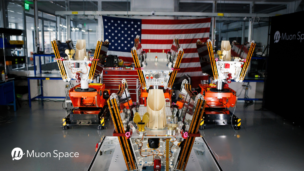Astra Space announced a reverse stock split on Wednesday in a last ditch effort to prevent a delisting on the stock exchange.
The company’s board of directors approved the stock split of Astra’s Class A and Class B common stock, both valued at $0.0001, at a ratio of one for 15, effective immediately.
Coming back to Earth
The company was the first launch startup to trade on the NASDAQ back in the SPAC-apalooza of 2021, and the move fueled Astra’s plans to expand its launch services. But its ambitious foray on the stock market hit trouble in July when the company’s stock price dwindled below the $1 per share minimum requirement set by NASDAQ.
Enter the reverse stock split. It’s a common tool utilized by struggling companies, including Momentus and Spire, to artificially bump up a stock price while preserving their market cap value.
The reverse stock split was first announced in July in a filing with the Securities and Exchange Commission.
Some history
The company’s stock price wasn’t the only thing struggling. As venture firms tightened their purse strings, Astra was not immune to the workforce exodus that plagued the tech industry.
As the company expanded into spacecraft thruster production, it also laid off 70 employees and transferred another 50 out of its launch vehicle division. On an earnings call, CEO Chris Kemp said the company was actively looking for strategic investors as its financial runway was dwindling.
Meanwhile, the company had to delay the development of its Rocket 4 vehicle, which was previously projected to be ready for its first test flight in 2023. It’s the latest of a string of setbacks, including the one last year, when the company had to abandon Rocket 3.
For what it’s worth, Astra Space is still running. We can’t say the same for a similar satellite launch company, Virgin Orbit, which went bankrupt back in April.





